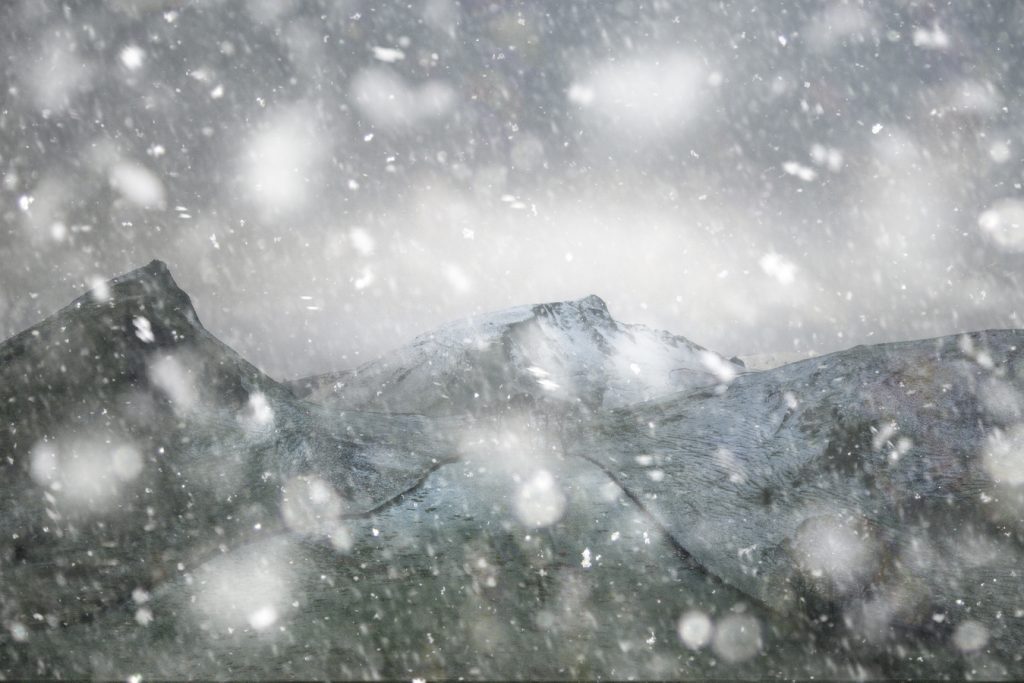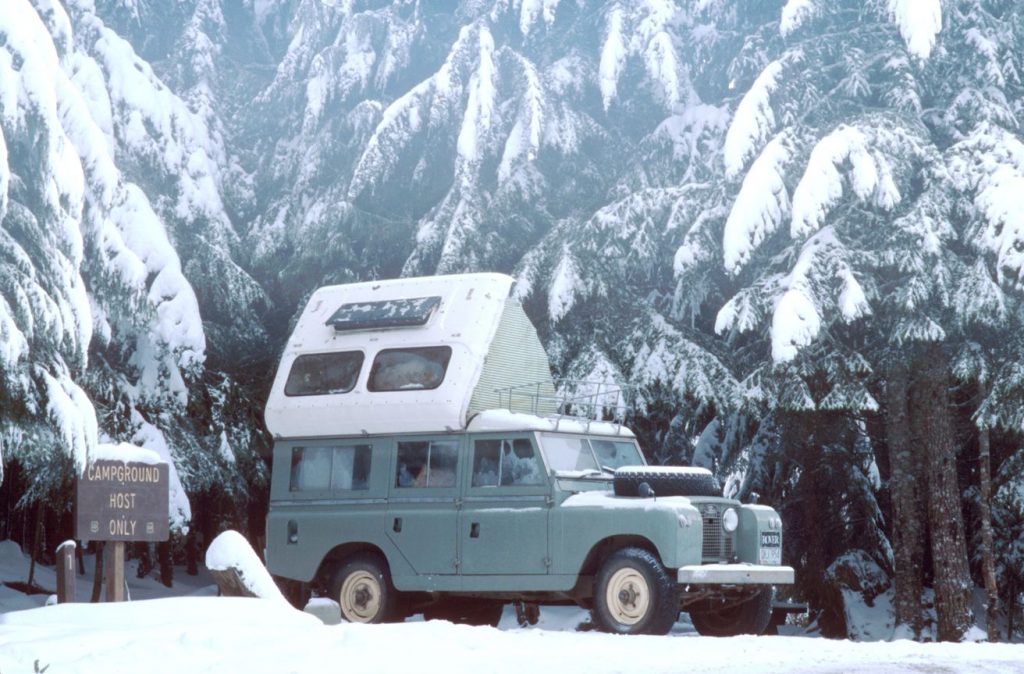
Snowstorms can be simply a nuisance, or they can be a nomad’s nightmare. The good thing is that most major winter storms are known to forecasters at least days, if not a week or so, in advance. If you know a snowstorm is on its way, you need to think about a few things:
- Can you safely get out of its reach before it hits?
- If not, where are you going to be when it hits?
Get Off the Road
Unless you have a four-season rig, when it comes to winter storms, it’s best to just get out of their way altogether. Most rigs weren’t built to stand up to extremely low temperatures, and most RVers aren’t looking to deal with all that, anyway. Many of us are on the road as snowbirds to begin with, so we’re certainly not looking forward to tackling sleet, snow, ice and extreme cold. Most of us will willingly vacate to warmer climes, at least until the storm danger has passed.
But what about those who like winter weather because they’re really into outdoor snow sports or just enjoy snow? And what about those who would like to move, but for whatever reason, can’t?
One thing is for sure: You do NOT want to be on the road if you can help it when a winter storm hits. Sleet and freezing rain—common precursors to full-blown blizzards—lead to black ice, the bane of any driver. But when you’re driving a big Class A or towing a trailer of any size, black ice is just one thing you seriously do not want to deal with.
My advice is to first monitor weather at least a week out by listening to a NOAA All Hazards Weather Radio. That will give you the heads-up in advance, so you can prepare to either stay put, leave early to beat the storm, or lay over until the storm has passed.
If you don’t have a weather radio (why not!?), or you’re already on the road, listen to an AM radio band that offers weather reports four times an hour.
- If they’re beginning to talk about an upcoming storm with any regularity, it’s time to find a place to park.
- If you’re beginning to hear alerts or advisories for long-haul truckers, you are perilously close to being in danger. I don’t advise this, but if you’re caught on the road in this situation, you wouldn’t be the first to pull into a truck stop, fuel station, service plaza, or even a rest stop, and ride it out there. Almost anything is better than staying out on the unprotected open road.
- Make sure to pay close attention to notices of State Patrol-ordered Interstate and highway closings. Don’t even try to bypass closure gates to keep going. They are there for your protection, and if you go out on that road and get stuck you’ll be endangering the lives of first responders sent to rescue you.

Know The Forecast
More than anything, pay close attention to forecasts. Though I am a huge user of weather apps for my smartphone, and always default to listening to a NOAA All Hazards Weather Radio, I am also a big believer in being aware of and listening to the best local radio stations. While most phone apps do their best to create accurate local forecasts, they are largely based on algorithms. When it comes to forecasting atypical weather such as winter storms, it’s still an inexact science, and I will always trust a trained, experienced human forecaster over an algorithm.
When it comes to winter storms, there’s just nothing like a local station with a longtime local forecaster who really understands the area’s typical weather and innate topographical features that affect local winds and precipitation.
- So if you’re on the road, stay tuned to local stations as storm conditions develop and find a place of safety to hole up until it’s over.
- If you’re in an RV park, ask your campground manager or camp host if they know where to tune, and do so.
- If you’re boondocking and have a cell signal, do a search on “best local radio station (town name),” and tune in, if you can, via their live website stream.
- In any of these situations, your best bet is to also listen frequently to a NOAA All Hazards Weather Radio.
You really want to know what to expect in terms of
- temperatures
- wind
- snowfall
- when the storm is expected to initiate in and move away from your locale.
Forewarned is forearmed, so to speak. When you’re in a sticks-and-bricks dwelling, a snowstorm can be inconvenient; but in an RV or other mobile dwelling, if you’re not prepared, it can be deadly.
Winter Weather How-Tos
More:
- RV Weather – Main Page
- RV Weather – Severe-Prone Areas of the U.S.
- RV Weather – Recognizing Severe Weather Conditions
- RV Weather – Weather Awareness and What To Do
- RV Weather – How Severe Weather Develops
- RV Weather – How Storms Turn Violent
- RV Weather – Types of Clouds to Watch For
- RV Weather – Hurricanes and Tropical Systems
- RV Weather – Smartphone Apps
- Current Severe Weather Alerts for Nomads – My Facebook Group

Recent Comments